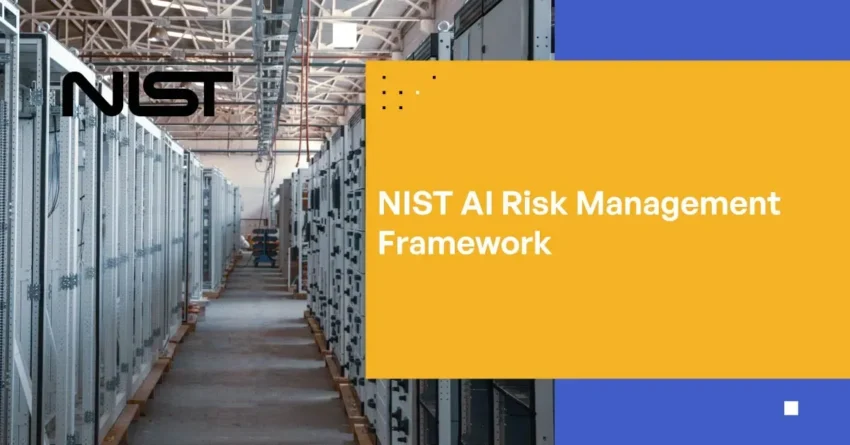In a striking development that raises concerns about the future of AI safety initiatives, reports suggest that the National Institute of Standards and Technology (NIST) may soon lay off as many as 500 employees. This move threatens to dismantle key programs, notably the US AI Safety Institute (AISI) and Chips for America, both crucial to the establishment of standards for AI development. As the landscape of artificial intelligence continues to evolve rapidly, the potential cuts come at a time when the need for robust oversight and expert guidance has never been more urgent, casting a shadow over the government’s commitment to ensuring safe AI practices.
| Category | Details |
|---|---|
| Organization | National Institute of Standards and Technology (NIST) |
| Layoff Count | Up to 500 staff members |
| Affected Initiatives | US AI Safety Institute (AISI) and Chips for America |
| Layoff Focus | Probationary employees (first year or two) |
| Current Situation | Some employees received verbal notifications of layoffs |
| AISI’s Purpose | Studying risks and establishing standards for AI development |
| Background | Established last year following an executive order on AI safety |
| Political Context | Executive order rescinded by President Trump on his first day back |
| Leadership Change | AISI’s director left in early February |
| Community Response | Organizations condemned layoffs; concerns over AI safety expertise |
| Expert Opinion | Cuts would impair government’s ability to address AI safety issues, says Jason Green-Lowe |
The Importance of AI Safety
AI safety is a big deal because artificial intelligence is becoming a huge part of our lives. It helps us with everything from playing games to driving cars, but if it isn’t safe, it can cause problems. That’s why organizations like the US AI Safety Institute (AISI) were formed. They study how to keep AI safe and help set rules for its development, ensuring that people use it responsibly.
With the rapid growth of technology, understanding AI safety is more important than ever. Imagine a robot making decisions that could affect your life without proper guidance! The AISI aims to prevent such scenarios by researching potential risks and solutions. By focusing on AI safety, we can enjoy the benefits of technology while minimizing risks that could harm people or society.
Challenges Faced by the National Institute of Standards and Technology
The National Institute of Standards and Technology (NIST) plays a vital role in developing standards for various technologies, including AI. However, recent reports suggest that NIST might have to make cuts, which could seriously affect its work. If they let go of staff members, especially those working on AI safety, it could slow down important research and projects that keep AI safe for everyone.
These challenges come at a time when the world is increasingly depending on AI. NIST was established to help create guidelines and standards to ensure technology is safe. Losing staff members means losing valuable knowledge and skills, which could prevent NIST from fulfilling its mission effectively. This situation raises concerns about how we will handle the growing complexities of AI in the future.
The Impact of Layoffs on AI Initiatives
Layoffs at NIST could have serious implications for AI initiatives like the US AI Safety Institute (AISI) and Chips for America. These programs are designed to take a close look at AI technologies and their potential risks. If key employees, especially those working in these areas, are let go, the progress made in understanding and ensuring AI safety could be set back significantly.
Without enough staff to conduct research and develop safety standards, the AISI may struggle to address the important issues surrounding AI. This could leave gaps in our understanding of how to keep AI systems safe and reliable. As technology advances, it’s crucial that organizations like AISI have the resources they need to protect society from potential AI-related dangers.
The Future of AI Safety Research
The future of AI safety research looks uncertain, especially with the recent news about layoffs. Organizations that focus on AI safety, like AISI, are essential for understanding how AI can affect our lives. As technology evolves, researchers need to stay ahead of potential risks to develop effective solutions. A lack of funding and staff will make it harder to keep up with these challenges.
It’s vital for our society to prioritize AI safety research, especially as AI systems become more common. Experts believe that without sufficient support and resources, we might face significant dangers from AI technologies. By investing in AI safety initiatives, we can ensure that future advancements in technology contribute positively to our lives without compromising our safety.
Responses from the AI Community
The layoffs at NIST have sparked concern in the AI community, with many organizations voicing their disapproval. Experts argue that cutting staff will weaken the government’s ability to address critical AI safety issues. The Center for AI Policy and other organizations have emphasized how essential it is to have skilled researchers focused on AI safety, especially in today’s rapidly changing tech landscape.
Many in the AI field believe that losing experienced professionals will hinder progress in understanding and managing AI risks. It’s crucial for the community to come together to advocate for continued funding and support for AI safety initiatives. By rallying together, they can help ensure that important research continues, keeping everyone safe as technology advances.
The Role of Government in AI Development
The government plays a significant role in regulating AI development to ensure it is safe and beneficial for everyone. Initiatives like the AISI were created to research and develop standards for AI technology. However, recent layoffs cast doubt on the government’s commitment to providing the necessary oversight for AI. It raises questions about how much support these organizations will receive moving forward.
Government support is crucial for fostering innovation while ensuring safety in AI development. By investing in AI safety organizations, the government can help set clear guidelines and standards that guide researchers and developers. This cooperation can help prevent potential risks associated with AI and promote responsible use of technology that benefits society as a whole.
Frequently Asked Questions
What layoffs are happening at the National Institute of Standards and Technology (NIST)?
NIST may cut up to 500 staff, particularly affecting new employees, impacting key initiatives like the US AI Safety Institute.
Why was the US AI Safety Institute (AISI) established?
AISI was created to study AI risks and set standards, following an executive order on AI safety from President Biden.
How have recent layoffs affected AISI’s future?
The layoffs leave AISI’s future uncertain, as they threaten the organization’s ability to address crucial AI safety issues.
What was President Trump’s action regarding AI safety?
On his first day back in office, President Trump rescinded Biden’s executive order on AI safety, impacting AISI’s mission.
What do experts say about the layoffs at NIST?
Experts condemn the layoffs, asserting they will hinder the government’s ability to research important AI safety challenges.
Why is AI safety expertise important now?
AI safety expertise is critical as AI technology rapidly evolves, posing new risks that require careful management and regulation.
Who expressed concern over the layoffs at NIST?
Jason Green-Lowe, executive director of the Center for AI Policy, voiced strong concerns, highlighting the cuts’ potential harm to AI safety research.
Summary
The National Institute of Standards and Technology (NIST) may lay off up to 500 employees, which could harm important projects like the U.S. AI Safety Institute (AISI). Reports suggest that these job cuts mainly affect new employees and are part of a broader strategy. AISI was created to address AI safety issues after an executive order from President Biden, but its future is now uncertain. Experts warn that these layoffs could weaken the government’s ability to manage vital AI safety concerns, which are increasingly important in today’s technology-driven world.






